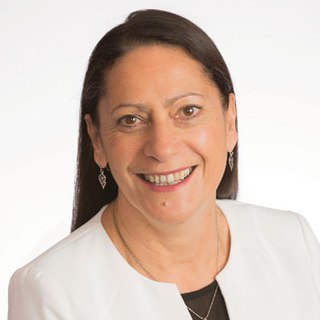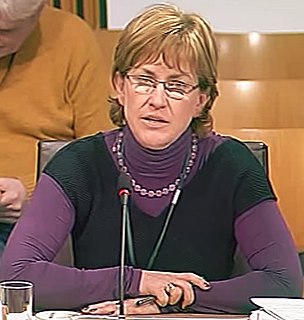Related Research Articles

Trevor Colin Mallard is a New Zealand politician and member of the Labour Party who is the 30th and current Speaker of the New Zealand House of Representatives. Currently a list MP, he formerly represented the Hutt South electorate from 1996 to 2017; he represented Pencarrow from 1993 to 1996; and Hamilton West from 1984 to 1990. Following the retirement from Parliament of Nick Smith in June 2021, Mallard became the longest continuously serving MP, known as the Father of the House.

Maurice Donald Williamson is a New Zealand diplomat and former politician who represented Pakuranga in the House of Representatives as a member of the National Party. He held several ministerial portfolios both inside and outside the cabinet: Transport, Communications, Broadcasting, Local Government, Research Science and Technology, Building and Construction, Customs, Small Business, Statistics and Land Information.
The New Zealand Initiative is a pro-free-market public-policy think tank and business membership organisation in New Zealand. It was formed in 2012 by merger of the New Zealand Business Roundtable (NZBR) and the New Zealand Institute. The Initiative’s main areas of focus include economic policy, housing, education, local government, welfare, immigration and fisheries.

The Royal New Zealand Society for the Prevention of Cruelty to Animals or SPCA New Zealand is a New Zealand charitable society who work to promote the humane treatment of animals. The society consists of 35 animal shelters around New Zealand, including many in regional areas. Under the Animal Welfare Act 1999, SPCA inspectors have the exclusive power to investigate animal welfare complaints and prosecute abusers when necessary. The Royal NZ SPCA has initiated a range of animal welfare campaigns. It has launched public education campaigns about the humane treatment of animals, and has encouraged people to change their behaviour towards animals. SPCA has also run advocacy campaigns aimed at promoting law changes or questioning the legality of certain practices.
The following lists events that happened during 2006 in New Zealand.

St Patrick's College is a state-integrated Catholic boys' day and boarding Secondary School located in Silverstream, Upper Hutt, New Zealand. It was established in 1931 when the original St Patrick's College, Wellington that had established in 1885 was intended to be moved to a larger site more suited to a boarding school, but both colleges survived as independent institutions.
Young ACT, formerly known as Prebble's Rebels, ACTivists and ACT on Campus, is a youth group affiliated with ACT New Zealand, a classical-liberal political party in New Zealand. It has supported the party for over two decades though has disagreed with ACT policy on issues such as alcohol and drug restrictions. Its president as of July 2021 is Ollie Murphy.

New Zealand society is generally accepting of lesbian, gay, bisexual and transgender (LGBT) peoples. The LGBT-friendly environment is epitomised by the fact that there are several members of Parliament who belong to the LGBT community, LGBT rights are protected by the Human Rights Act, and same-sex couples are able to marry as of 2013. Sex between men was decriminalised in 1986. New Zealand has an active LGBT community, with well-attended annual gay pride festivals in most cities.

There are numerous gangs in New Zealand, of varying criminality, organisation and ethnicity, including outlaw motorcycle gangs, street gangs and ethnically based gangs. A chapter of the Hells Angels motorcycle club was formed in Auckland in 1961, the first Hells Angels chapter outside the US. Soon after, the Mongrel Mob formed in Hastings and Wellington, developing into a predominantly Māori and Pacific Islander gang, and having the largest membership in the country. Through the 1960s and 1970s other outlaw motorcycle clubs and ethnically based gangs formed, including another predominantly Māori gang, Black Power, which grew to rival the Mongrel Mob.

Grant Murray Robertson is a New Zealand politician and member of the Labour Party who has served as the 19th deputy prime minister of New Zealand since 2020 and the minister of Finance since 2017. He has served as Member of Parliament (MP) for Wellington Central since 2008.

Hell Pizza is a New Zealand-based pizza chain. It was established in Wellington (Kelburn) in 1996 and has since expanded around New Zealand.

Munokoa Poto Williams has served as a member of Parliament in the New Zealand Labour Party parliamentary caucus since the 2013 Christchurch East by-election. She became the second Cook Islander elected to the New Zealand Parliament – after Alfred Ngaro.
The Roast Busters scandal was a scandal in New Zealand involving a group of young men based in Auckland who were accused of intoxicating underage girls to gang rape them, and the police response to the complaints of alleged victims. Three members of the group, after an 18 month investigation by detectives from across the country the investigation ended with no charges being laid due to lack of evidence. The case has drawn reactions from the then Prime Minister, the Police Commissioner, the Minister of Police, several prominent media personalities in New Zealand, and the New Zealand public.

Marama Mere-Ana Davidson is a New Zealand politician who entered the New Zealand Parliament in 2015 as a representative of the Green Party of Aotearoa New Zealand, of which she is the female co-leader.

Clare Mary Smith McGlynn is a Professor of Law at Durham University. She specialises in the legal regulation of pornography, image-based sexual abuse, violence against women, and gender equality in the legal profession. In 2020, she was appointed an Honorary QC in recognition of her work on women's equality in the legal profession and shaping new criminal laws on extreme pornography and image-based sexual abuse. She was awarded an Honorary Doctorate from Lund University, Sweden, in 2018 in recognition of the international impact of her research on sexual violence and she is a Fellow of the Academy of Social Sciences. She has given evidence before Scottish and UK Parliaments on how to reform laws on sexual violence and online abuse, as well as speaking to policy audiences across Europe and Australia. In November 2019, she was invited to South Korea to share international best practice in supporting victims of image-based sexual abuse and she has worked with Facebook to support their policies on non-consensual intimate images. She regularly contributes to media debates about her areas of expertise, commenting in 2017 on whether pornography should be included on the school curriculum, whether it is ok to watch pornography in public, celebrity image-based sexual abuse, and on the proposed regulation of upskirting in England and Wales. She has submitted evidence to UK and Scottish Parliamentary committees. Her work with Erika Rackley on the cultural harm caused by rape pornography was instrumental in the Scottish Parliament's decision to criminalise possession of such material. McGlynn and Rackley were involved in Rape Crisis London's campaign to 'close the loophole' that makes possession of rape pornography lawful in England and Wales. The campaign was successful, and an amendment to include rape in the definition of 'extreme pornography' was incorporated into the Criminal Justice and Courts Act 2015.
Violence against women in New Zealand is described as the kinds of violence faced by women disproportionately to men due to factors of ongoing gender inequality in society. The New Zealand government and the New Zealand justice system view efforts to prevent and deal with violence against women as a priority of New Zealand legislation and the criminal justice system. There are current domestic laws relating to the prevention and punishment of violence against women, however, despite these efforts, women in New Zealand still face high levels of violence. New Zealand was ranked as worst for Domestic Violence compared to other OECD countries with 1 in 3 women estimated to have been a victim of violence in their lifetime and as of 2020, with the onset of the COVID-19 pandemic, NZ police were reported to be responding to a domestic violence call every 4 minutes.
Sexual Abuse Prevention Network (SAPN) is a New Zealand non-governmental organisation that works in primary prevention of sexual abuse. The organisation focuses its prevention efforts on education and is also involved in awareness raising activities. The organisation is governed by Wellington Rape Crisis, Wellington Sexual Abuse HELP Foundation and WellStop.

The Royal Commission of Inquiry into Abuse in Care is a royal commission established in 2018 by the New Zealand government pursuant to the Inquiries Act 2013 to inquire into and report upon responses by institutions to instances and allegations of historical abuse in state care and faith based institutions between 1950 and 2000.
Rape Crisis Scotland is a charity which provides a national rape crisis helpline and email support for anyone affected by sexual violence, no matter when or how it happened. There are 17 local centres across Scotland.
References
- ↑ "Education and Science Select Committee". Parliament New Zealand. Retrieved 28 November 2015.
- ↑ "Welington Rape Crisis Celebrates 35 years". Scoop Independent News. Retrieved 28 November 2015.
- ↑ "Timeline - Community | New Zealand Family Violence Clearinghouse". Nzfvc.org.nz. Retrieved 30 November 2015.
- ↑ Cook, Megan. "Women's movement - Violence and Pornography". Te Ara Encyclopedia of New Zealand. Ministry for Culture and Heritage. Retrieved 29 November 2015.
- ↑ "Charity Summary". Charities Services Internal Affairs. Retrieved 28 November 2015.
- ↑ "Rape Crisis accepts Hell Pizza offer". NZ Herald. Retrieved 29 November 2015.
- ↑ "Hell Pizza offered redemption for Facebook "Confessional" disgrace" . Retrieved 29 November 2015.
- 1 2 "Wellington Rape Crisis statement on Roastbusters and police". Scoop.co.nz. Retrieved 29 November 2015.
- ↑ "Parliament in uproar". Stuff. Retrieved 29 November 2015.
- ↑ Dunedin, Eleanor Ainge Roy in. "New Zealand female MPs thrown out of parliament after disclosing sexual assaults". the Guardian. Retrieved 29 November 2015.
- ↑ "Second walk-out over PM's comments". Radio New Zealand. Retrieved 29 November 2015.
- ↑ "Charities get chance to help more people". The Dominion Post. Retrieved 28 November 2015.